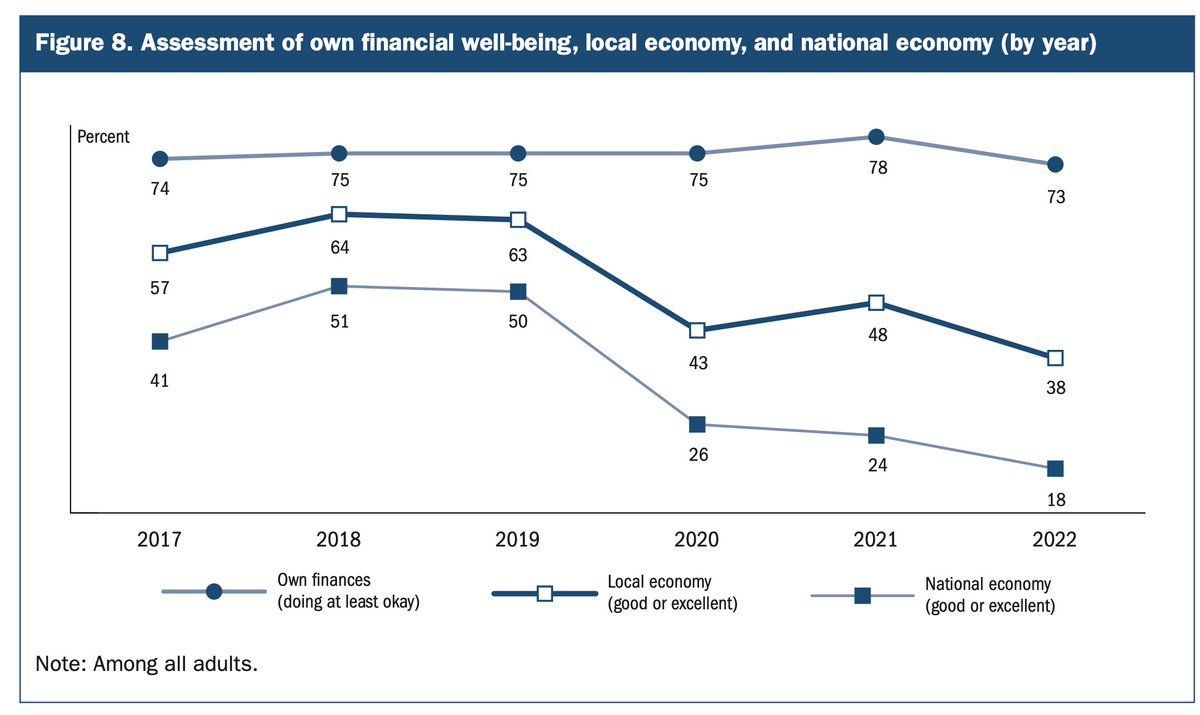Paul Krugman posted this chart today from the Fed's annual survey of economic well-being:
 There are two interesting things here. First, if you look at the top line it's nearly flat. This is people reporting on their own finances, and COVID-19 had almost no effect at all. None. There's even a slight uptick in 2021, probably thanks to federal assistance. Overall, though, the pandemic simply had no impact on people's assessment of their own finances.
There are two interesting things here. First, if you look at the top line it's nearly flat. This is people reporting on their own finances, and COVID-19 had almost no effect at all. None. There's even a slight uptick in 2021, probably thanks to federal assistance. Overall, though, the pandemic simply had no impact on people's assessment of their own finances.
Second, the pandemic had a huge impact on views of the economy in general. Thanks to news coverage, most of the country concluded that the economy was in free fall even though they themselves were doing OK.
I'm still not sure what to make of this general phenomenon. We see it all the the time, from crime to schools to politics. People report that things are OK personally (my schools are good, my congressman is fine, etc.) but that the country generally is going to hell. Does this have some kind of rational basis? Is it mostly due to doomsaying news coverage? Or what? It really deserves some rigorous research.




